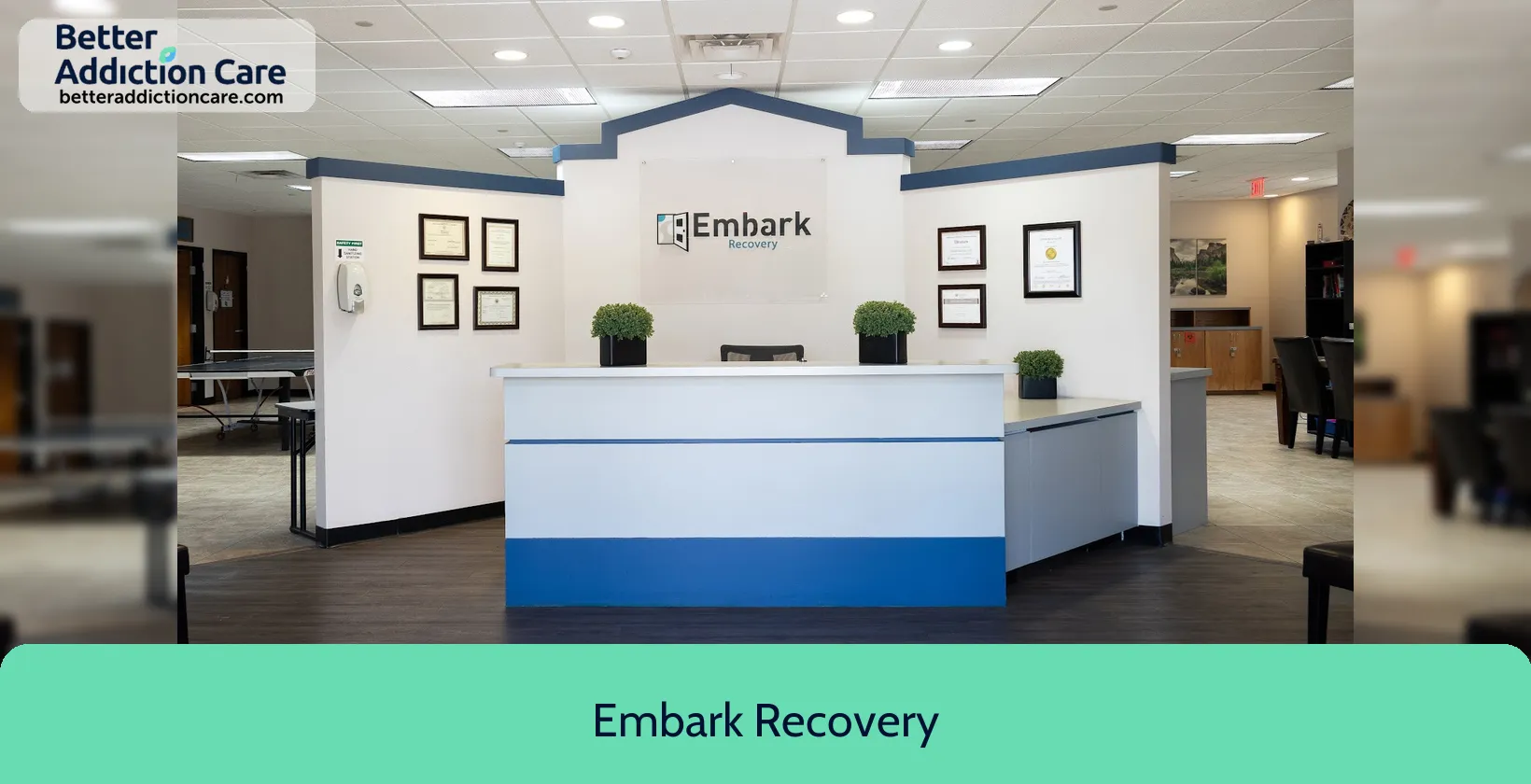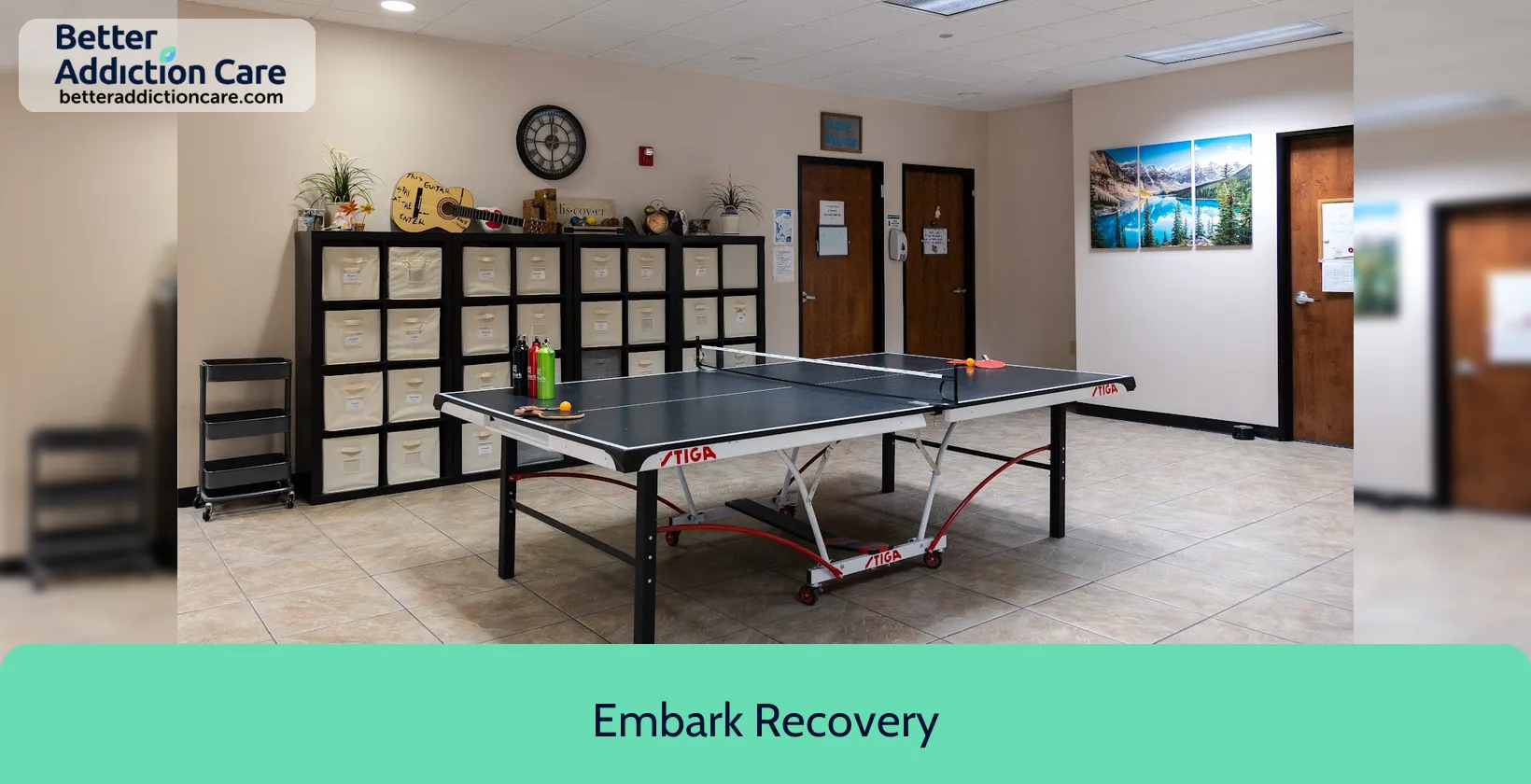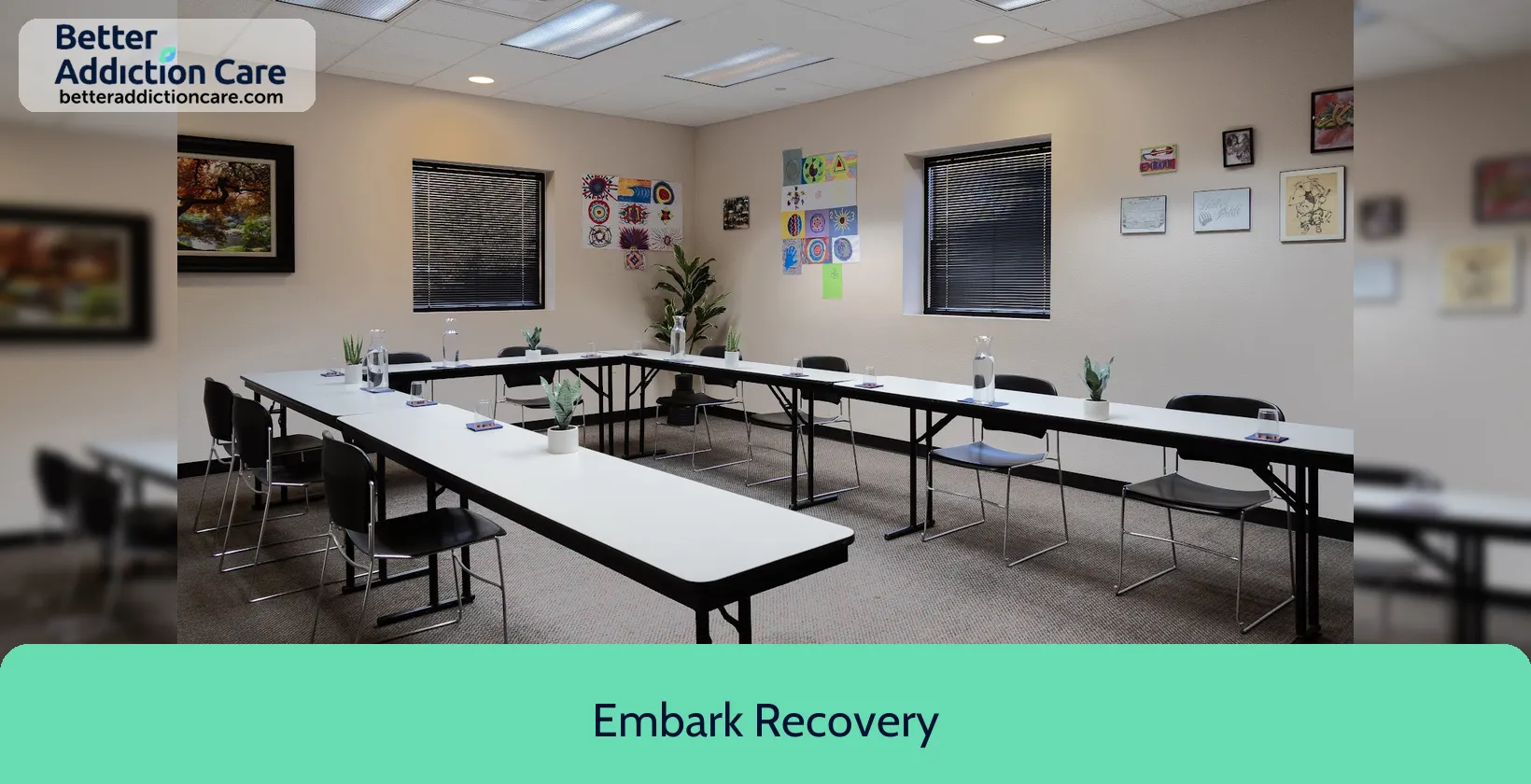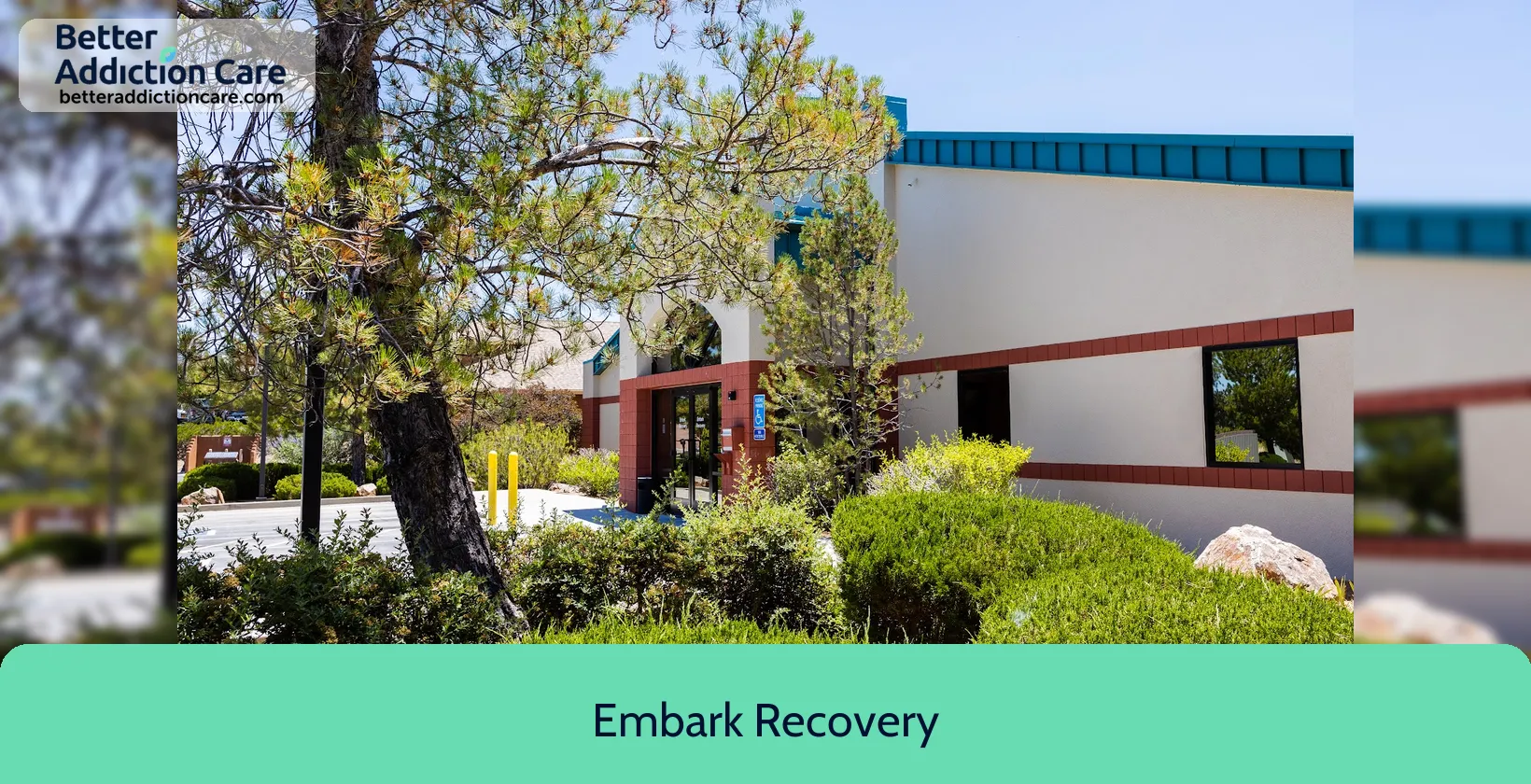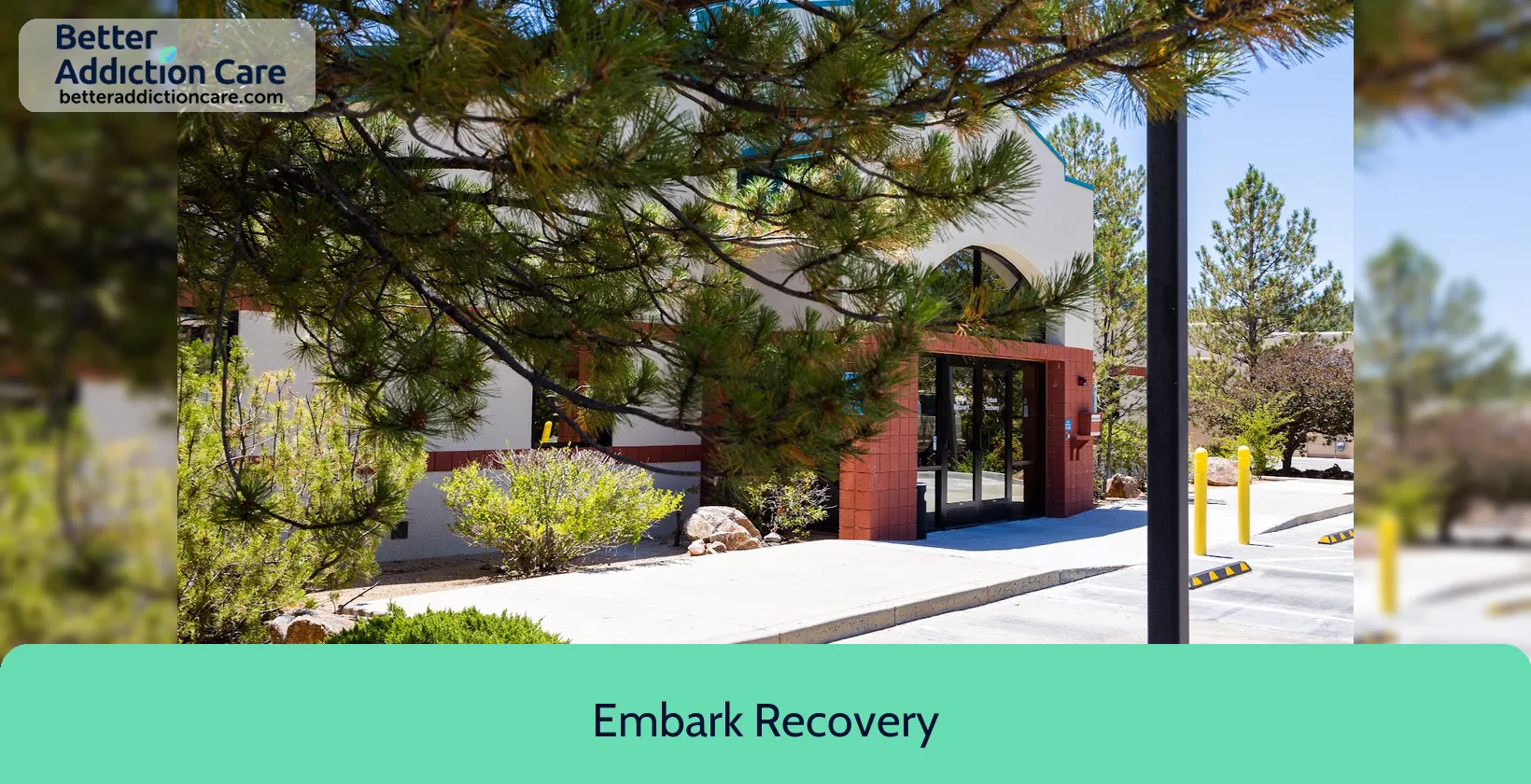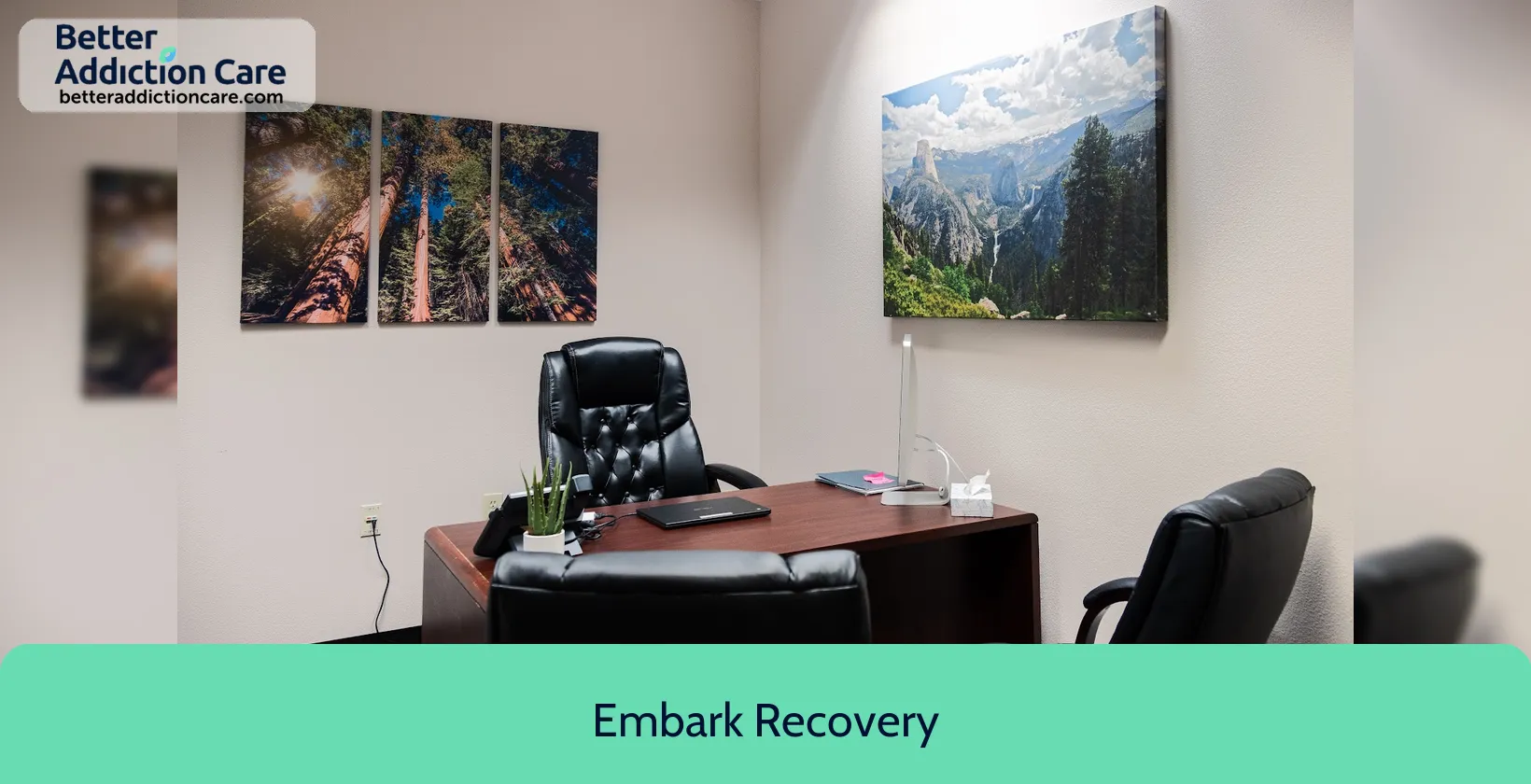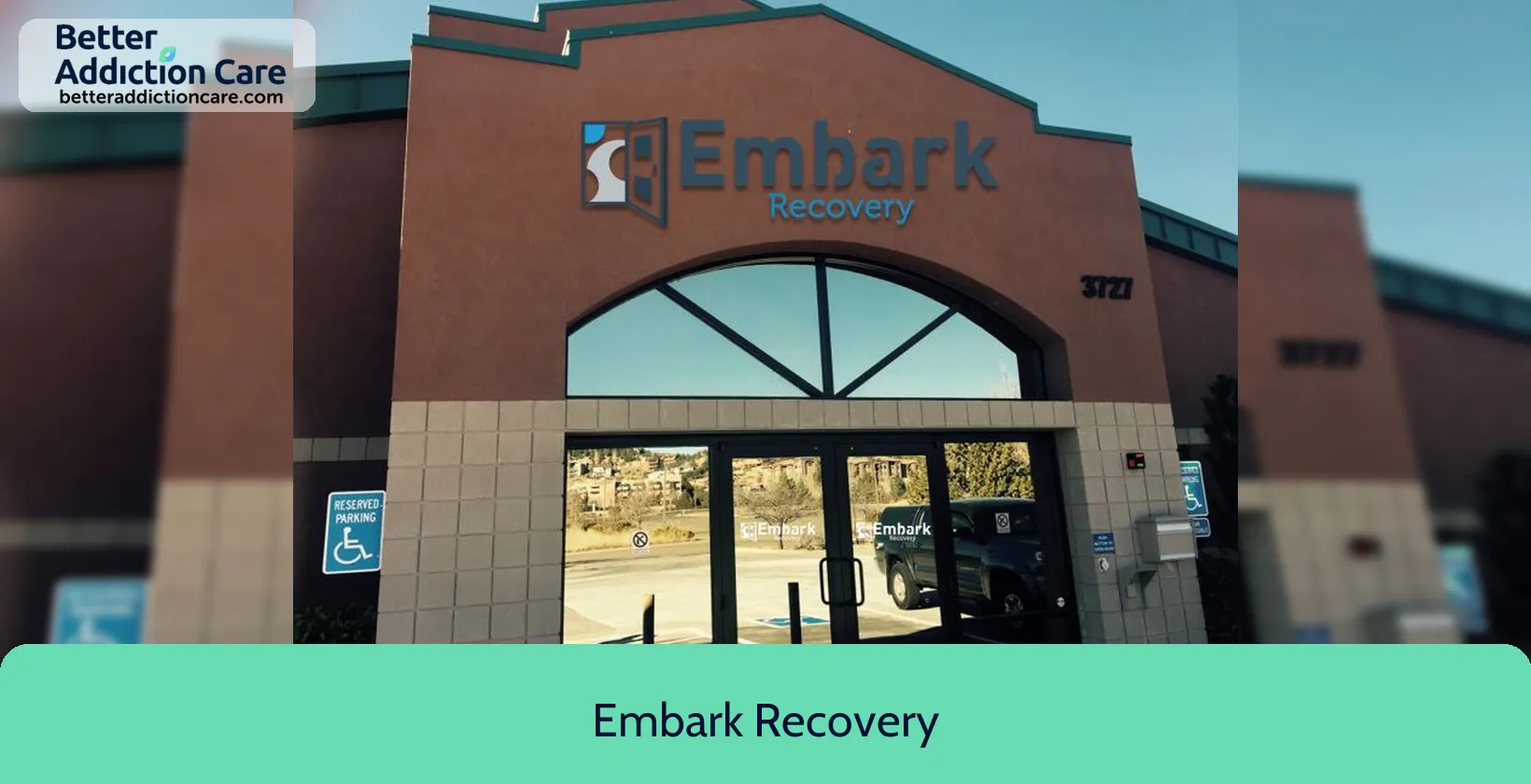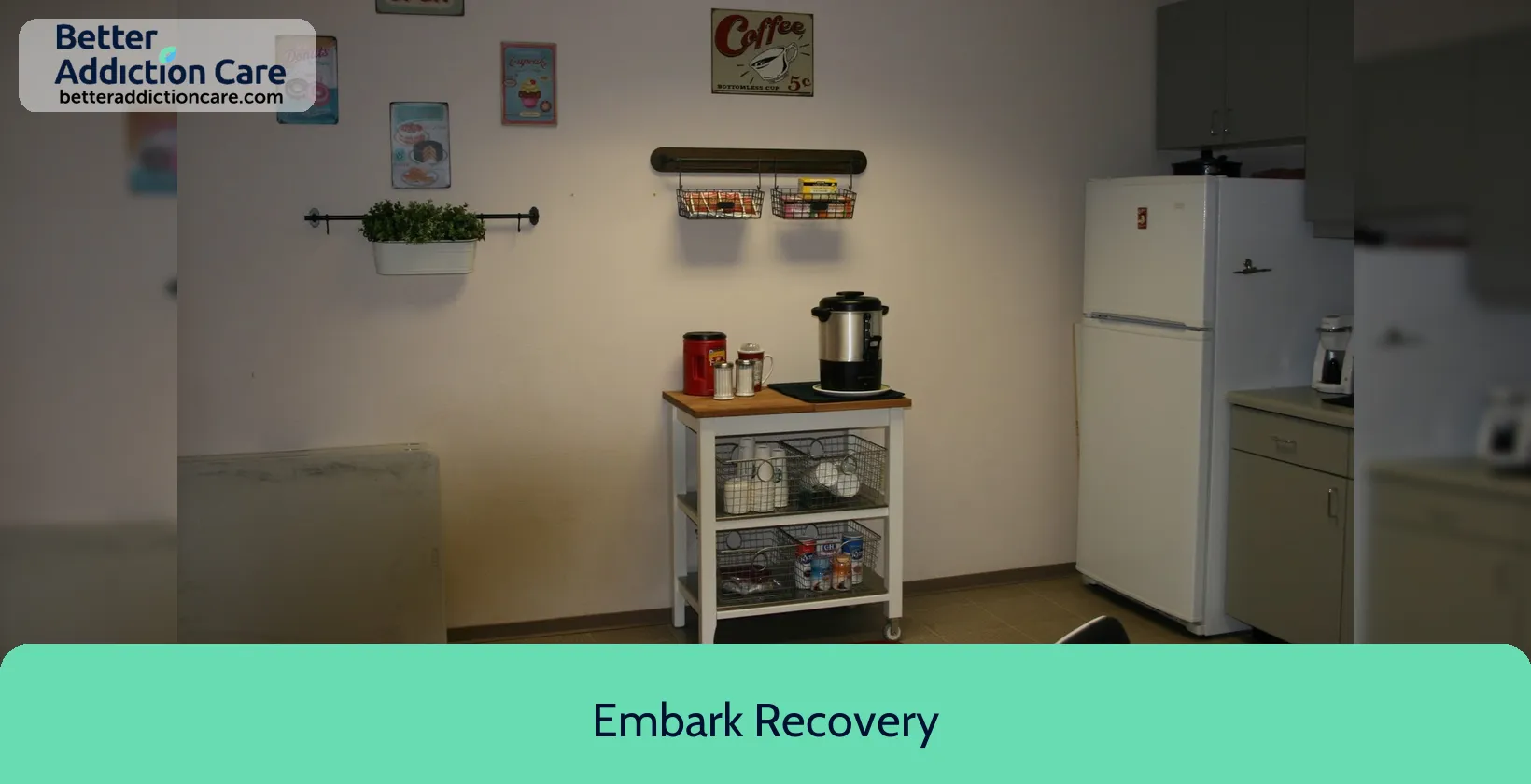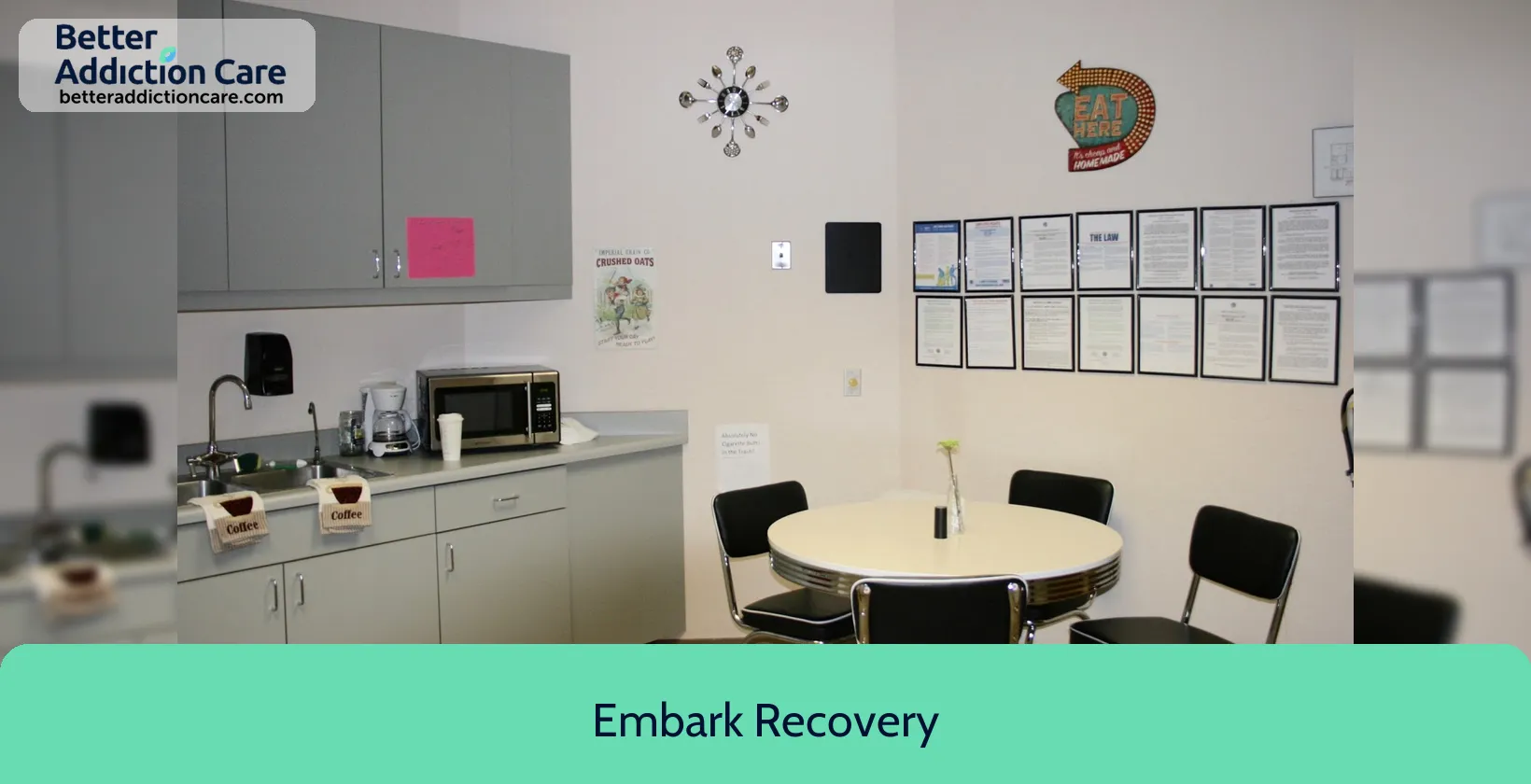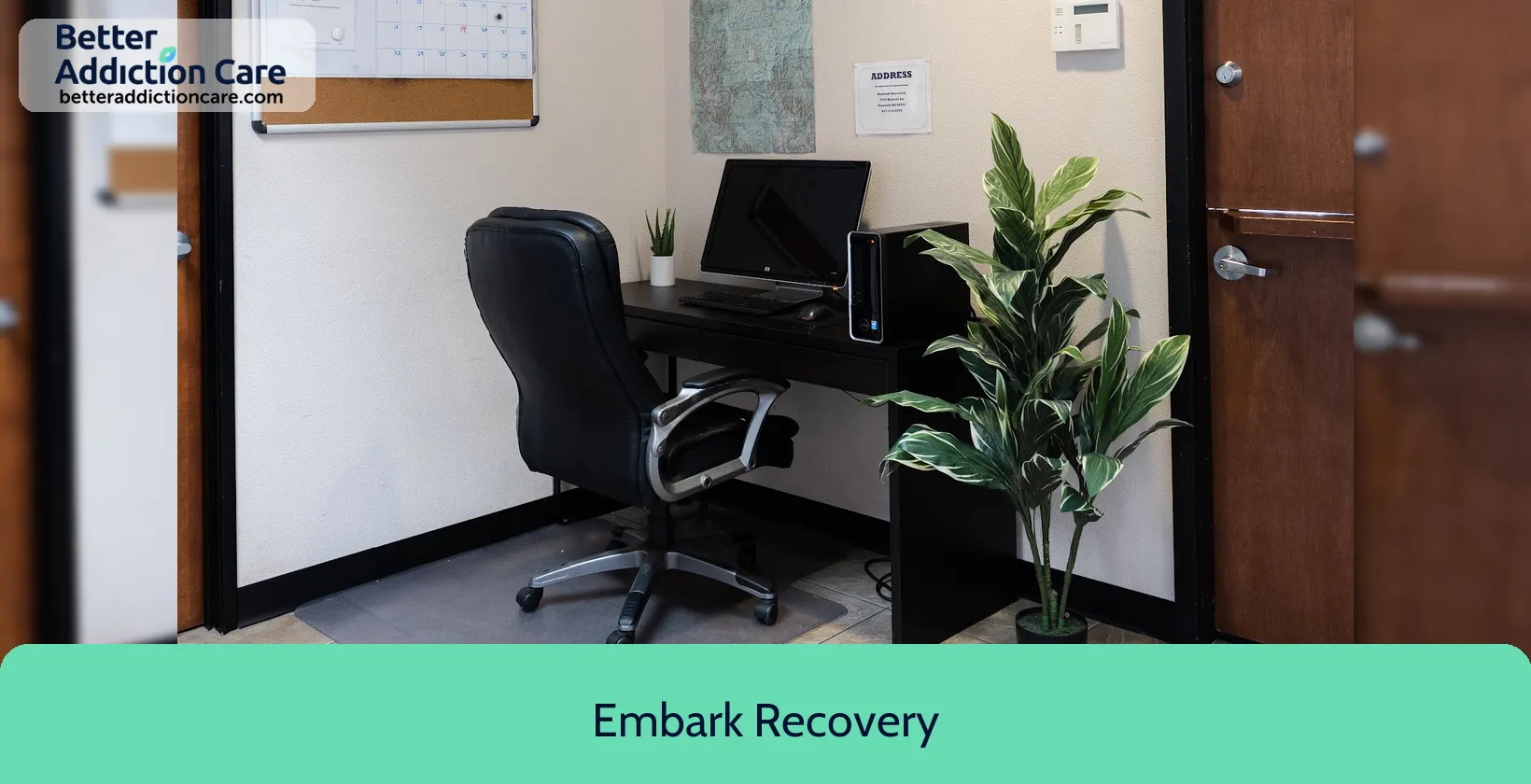Overview
Embark Recovery is an accredited substance abuse treatment center that provides inpatient and outpatient detoxification, for men from 18+ years of age. As part of their special programs, Embark Recovery treats clients with co-occurring mental and substance use disorders, veterans, and active duty military. To help patients achieve sobriety, Embark Recovery provides intake assessments. Afterward, patients receive family counseling, group counseling, and animal therapy during treatment. Embark Recovery is located in Prescott, Arizona, providing treatment for people in Yavapai County, accepting cash or self-payment, payment assistance (check with facility for details), and private health insurance.
Embark Recovery at a Glance
Payment Options
- Cash or self-payment
- Payment assistance (check with facility for details)
- Private health insurance
- Medicaid
- Federal military insurance (e.g., TRICARE)
Assessments
- Comprehensive mental health assessment
- Comprehensive substance use assessment
- Screening for tobacco use
- Interim services for clients
- Outreach to persons in the community
Age Groups
- Adults
- Young adults
Ancillary Services
- Case management service
- Suicide prevention services
- Mental health services
- Social skills development
- Transportation assistance
Highlights About Embark Recovery
7.57/10
With an overall rating of 7.57/10, this facility has following balanced range of services. Alcohol Rehabilitation: 8.06/10, Drug Rehab and Detox: 8.15/10, Insurance and Payments: 6.00/10, Treatment Options: 8.06/10.-
Drug Rehab and Detox 8.15
-
Alcohol Rehabilitation 8.06
-
Treatment Options 8.06
-
Insurance and Payments 6.00
Accreditations
State mental health department:
State mental health department accreditation refers to the process of evaluating and certifying the quality and standards of a state's mental health department, ensuring that it provides high-quality services and meets specific criteria for mental health care. The accreditation process is performed by a third-party organization and helps to improve the overall care and treatment of individuals with mental health conditions.
State department of health:

Government agencies issue State Licenses, granting rehabilitation organizations permission to operate their businesses lawfully within specific geographic regions. The specific licenses needed for legal operation are typically determined by the type of rehabilitation program offered by the facility and its physical location.
The Joint Commission:

The Joint Commission's addiction and behavioral health accreditation signifies a facility's commitment to high-quality care. It involves rigorous evaluations and assessments of clinical practices, ensuring effective, evidence-based treatment. Accreditation showcases a dedication to continuous improvement and patient safety, instilling trust among patients, families, and healthcare professionals. It's a mark of excellence in addiction and behavioral health care.
Treatment At Embark Recovery
Treatment Conditions
- Mental health treatment
- Alcoholism
- Opioid Addiction
- Substance use treatment
- Co-occurring Disorders
Care Levels
- Detoxification
- Outpatient
- Hospital inpatient treatment
- Outpatient methadone/buprenorphine or naltrexone treatment
- Outpatient day treatment or partial hospitalization
Treatment Modalities
- Family counseling
- Group counseling
- Animal Therapy
- Equine Therapy
- Holistic Treatment
Ancillary Services
Additional Services
- Pharmacotherapies administered during treatment
- Holistic Treatment
- Breathalyzer or blood alcohol testing
Special Programs
- Clients with co-occurring mental and substance use disorders
- Veterans
- Active duty military
- Members of military families
- Criminal justice (other than DUI/DWI)/Forensic clients
Get Help Now
Common Questions About Embark Recovery
Contact Information
Other Facilities in Prescott

7.57

7.71
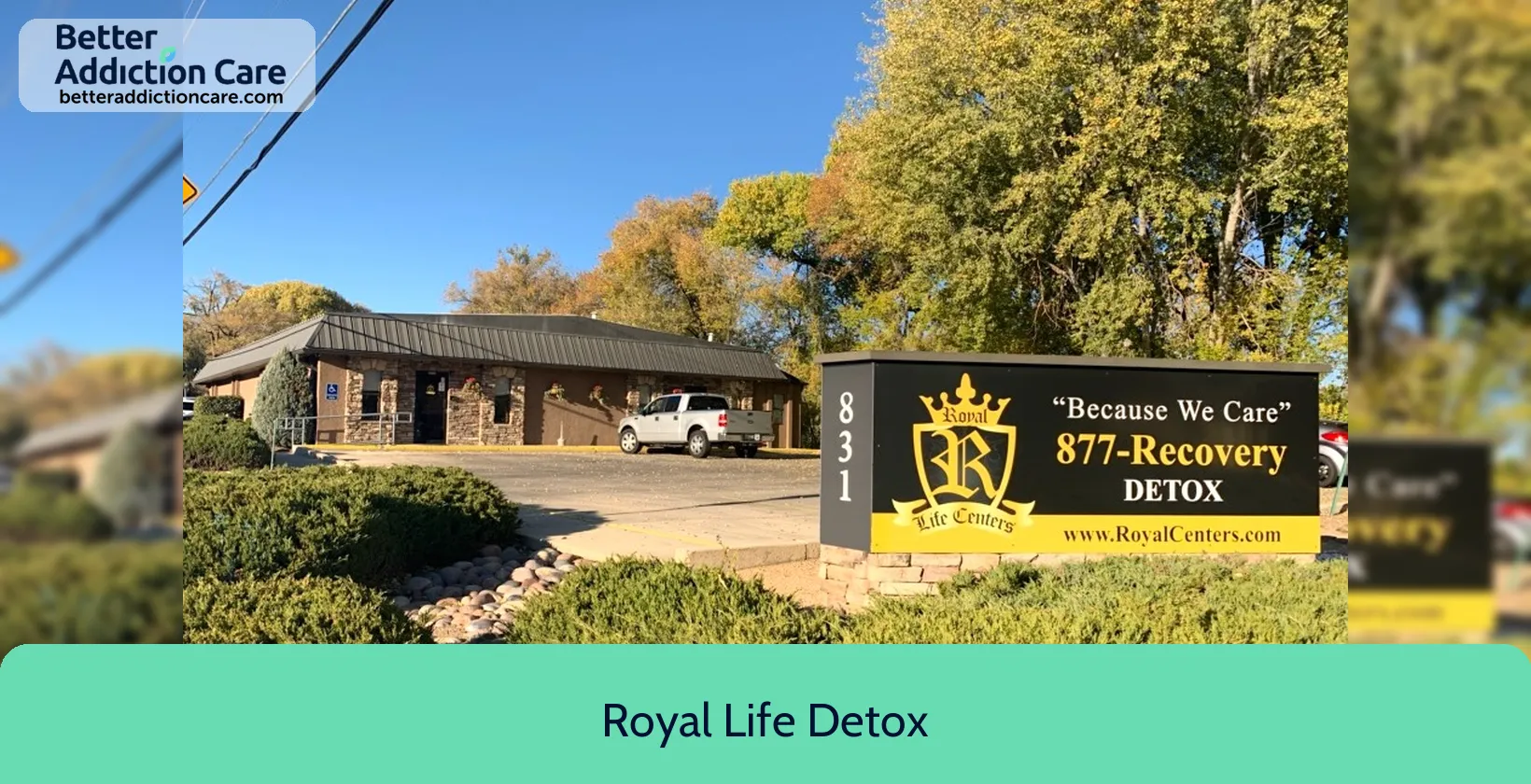
7.31
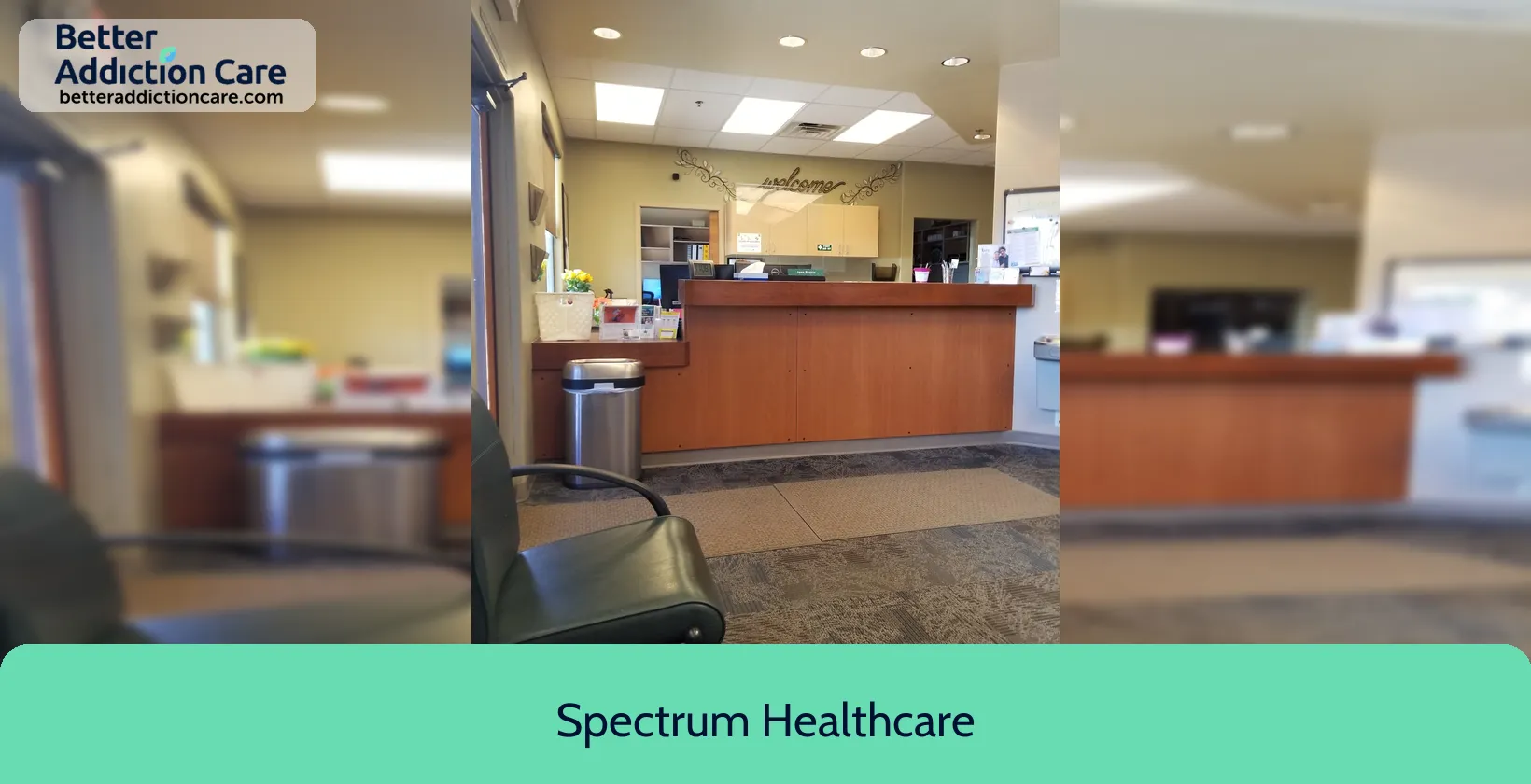
7.17
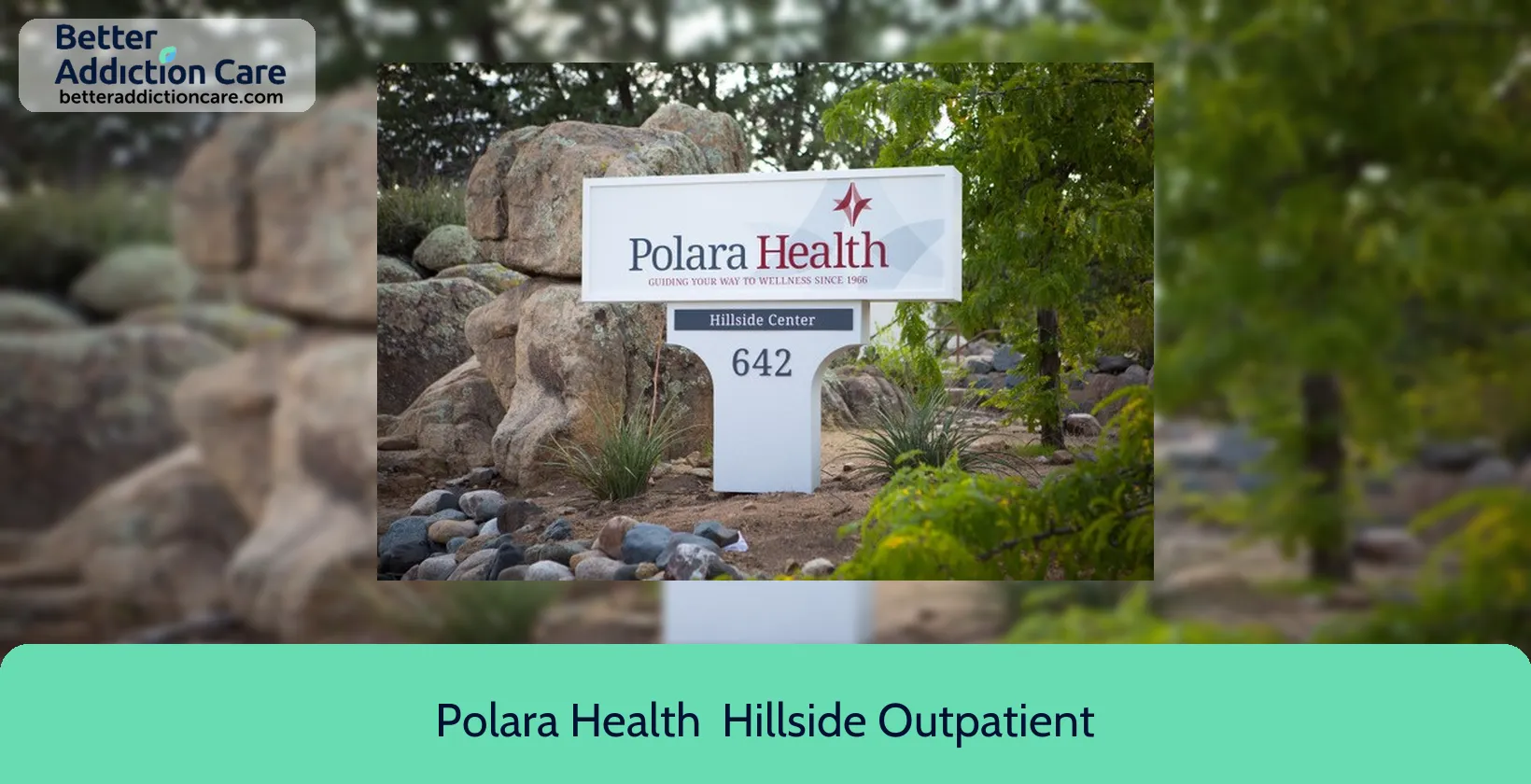
6.71
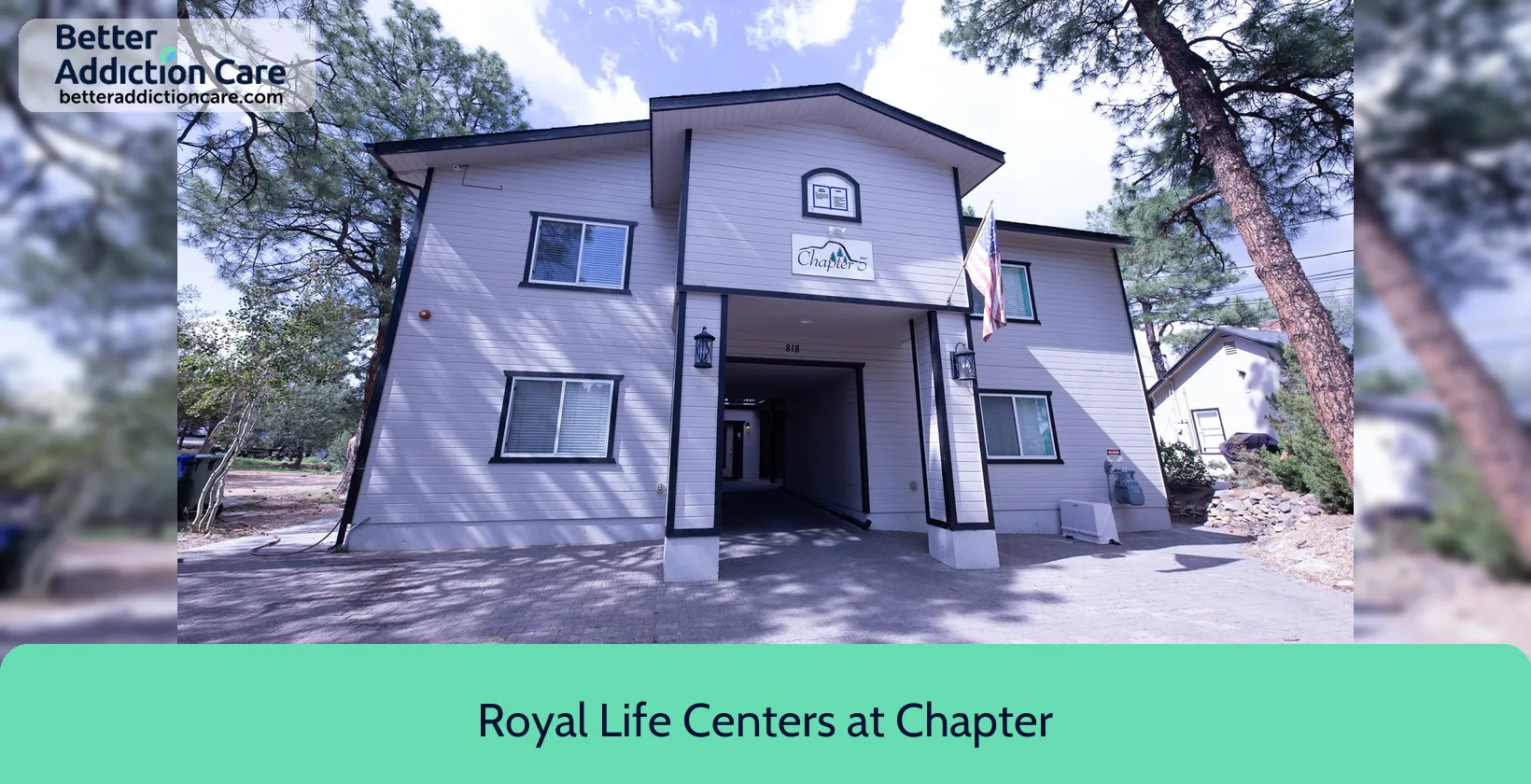
7.16
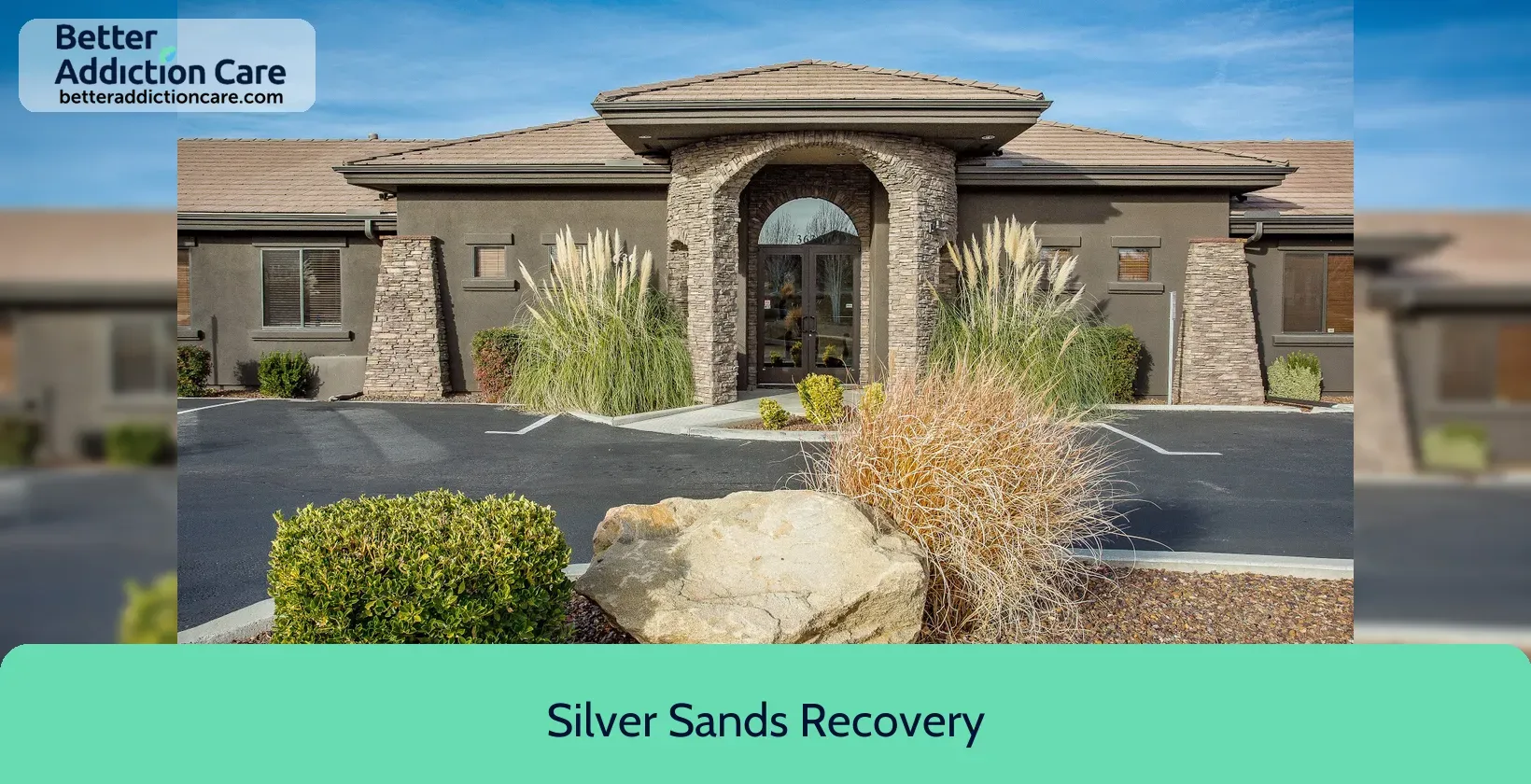
7.49
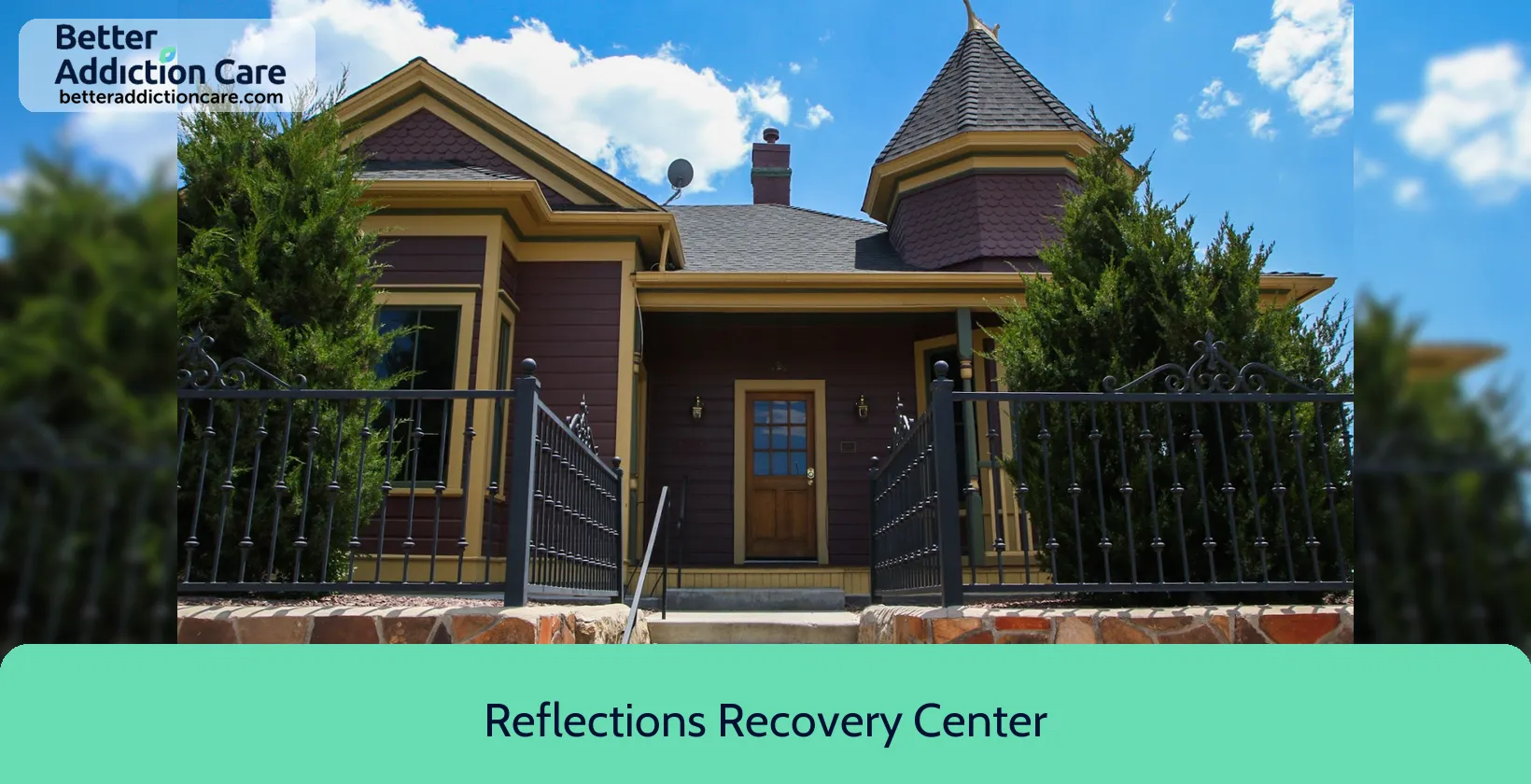
7.65
DISCLAIMER: The facility name, logo and brand are the property and registered trademarks of Reflections Recovery Center, and are being used for identification and informational purposes only. Use of these names, logos and brands shall not imply endorsement. BetterAddictionCare.com is not affiliated with or sponsored by Reflections Recovery Center.
